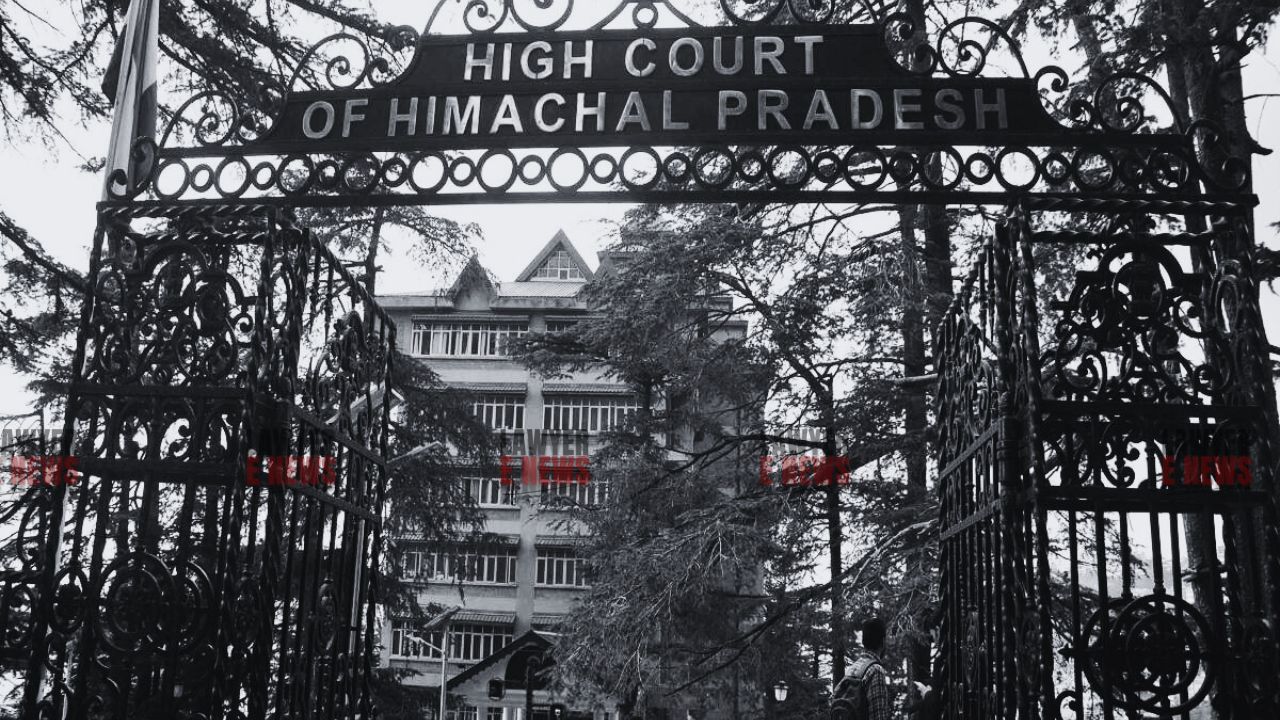-
by Admin
15 February 2026 2:16 AM



The Himachal Pradesh High Court, in a recent ruling, dismissed a petition seeking the quashing of an FIR filed against five individuals, including an election candidate, for allegedly distributing liquor to influence voters during a Panchayat election. The Court emphasized that political rivalry cannot be grounds for quashing criminal proceedings, particularly when prima facie evidence exists. The decision was delivered by Justice Rakesh Kainthla, who reiterated that the presence of liquor in the accused’s vehicle and allegations of electoral influence were sufficient to justify the continuance of the trial.
The case arose from an FIR lodged on January 19, 2021, at Police Station Kupvi, District Shimla, Himachal Pradesh. The FIR alleged that Virender Singh, a candidate in the Gram Panchayat Dhotali election, was distributing liquor to influence voters. The informant, also a candidate, was notified by Krishan Chand that Virender Singh and his associates were traveling in a vehicle late at night and distributing alcohol to voters. When attempts were made to stop the vehicle, the occupants fled, leaving behind six bottles of country-made liquor marked "for sale in Himachal Pradesh" and a mobile phone. The petitioners, including Virender Singh, were subsequently arrested, and a police challan was filed.
The petitioners contended that the FIR was politically motivated and that the recovery of six bottles of liquor from a vehicle with five occupants did not amount to a criminal offense. They argued that each individual was permitted to carry two bottles, and the total amount of liquor recovered was within permissible limits under the Himachal Pradesh Excise Act.
The Court rejected the petitioners' argument that the recovered liquor should be divided amongst the occupants of the vehicle. The Court noted that under the Himachal Pradesh Excise Act, it is impermissible to divide the contraband between the accused. Justice Kainthla cited the case of Veena Devi v. State of H.P., which held that when contraband is recovered jointly from multiple accused, it cannot be divided to claim compliance with permissible limits. The judgment further clarified that such an approach would defeat the purpose of the Excise Act.
The Court observed that the allegations in the FIR, which stated that the petitioners were distributing liquor to voters to influence the election, were sufficient to attract the provisions of Section 171E of the Indian Penal Code. Section 171E criminalizes bribery during elections, including distributing liquor to sway voters. The Court held that even though no direct evidence of distribution was found at the scene, the circumstances surrounding the recovery of liquor were enough to justify a trial.
Addressing the petitioners' claim of political vendetta, the Court cited the Supreme Court's ruling in Ramveer Upadhyay v. State of U.P. (2022), which held that political rivalry does not justify quashing criminal proceedings. "Though the complaint may be motivated by political considerations, it does not vitiate the proceedings if sufficient evidence exists," the Court stated. It was further noted that determining the veracity of the allegations would be the role of the trial court, not the High Court in its jurisdiction under Section 482 of the CrPC.
The petitioners had argued that the police failed to gather sufficient evidence to substantiate the claim of liquor distribution. The Court, however, reiterated that sufficiency of evidence is not a matter to be decided at the stage of quashing an FIR. Citing State of Maharashtra v. Salman Salim Khan (2004), Justice Kainthla noted that "the truthfulness, sufficiency, and acceptability of the material produced at the time of framing of charge can be done only at the stage of trial." The role of the High Court, he remarked, was not to conduct a mini-trial but to ascertain whether the FIR disclosed the commission of a cognizable offense.
The judgment leaned heavily on previous Supreme Court rulings regarding the exercise of inherent powers under Section 482 of the CrPC to quash criminal proceedings. The Court explained that quashing is only permissible in cases where the allegations are absurd or inherently improbable. In this case, the allegations regarding liquor distribution, coupled with the recovery of alcohol, presented sufficient grounds for prosecution. The Court also stressed that quashing the FIR at this stage would stifle a legitimate prosecution, particularly when the trial court is already seized of the matter.
"The allegations in the FIR, if taken at face value, disclose a cognizable offense under the Himachal Pradesh Excise Act and Section 171E IPC. It is impermissible to quash an FIR at this stage merely on the grounds of political rivalry or insufficient evidence," Justice Kainthla observed in his ruling.
He further noted, "The presence of six bottles of liquor in the vehicle during the election period is a significant fact that cannot be ignored, and it will be for the trial court to determine the truthfulness of the allegations through proper appreciation of evidence."
The Himachal Pradesh High Court’s decision to dismiss the petition underscores the seriousness of allegations related to electoral malpractices and the distribution of liquor to influence voters. The ruling clarifies that political rivalry cannot be used as a shield to evade prosecution when prima facie evidence exists. This judgment serves as a precedent for handling election-related criminal cases, particularly those involving violations of the Excise Act and electoral bribery under Section 171E of the IPC.
Date of Decision: September 3, 2024
Virender Singh & Others v. State of H.P. & Another
